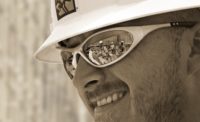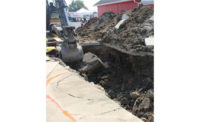Almost half of all construction workers say they probably or definitely would turn down a COVID-19 vaccine offered to them. The most common reasons are anxiety about side effects, doubts about safety and the belief that they don’t need the vaccine.
The data is part of a new a survey of vaccine hesitancy by a group of Pittsburgh-area public health researchers. Not yet peer-reviewed, the study results were posted April 28 on MedRxiv, a pre-print website for medicine.
A total of 3,381 construction/extraction workers provided reasons for their reluctance.
Prior to the pandemic, a survey by other researchers indicated construction workers are among the least likely to seek seasonal flu vaccines. Still other research showed a high percentage of construction workers had risk factors such as smoking or respiratory disease.
How employers will respond to new federal rules related to vaccines required for staff is unclear and promises to remain controversial.
The research teams from Carnegie-Mellon University and the University of Pittsburgh gathered data for their recent survey from 732,000 Facebook users. Respondents identified their occupations and answered questions about why people in different occupations wanted or were hesitant to get a coronavirus vaccine.
After increasing through most of 2020, reluctance by adults below age 65 dropped from 27.5% in January 2021 to 22.1% in March, the Pittsburgh research team wrote, but it varied by occupation.
“Messaging about vaccine safety is paramount,” said lead author Wendy C. King, Ph.D., associate professor of epidemiology in Pitt’s Graduate School of Public Health.
Respondents who work in architecture or engineering are at the lower end of the hesitancy spectrum. About one in three (32.6%) have had the vaccine, with fewer than two in 10 (18.3) claiming to be hesitant. Among those workers, one out of three say that they now work at home.
Almost one out of two (46.4%) workers classified as “construction/extraction” are vaccine-hesitant and just shy of two out of 10 (18.4%) have been vaccinated.







